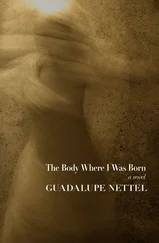The residency ended in late September and we returned to our respective countries. At first it felt good to be home and to get back to our daily lives. But, speaking for myself, I did not return to the same place I had left. To begin with, Mauricio was out of town. A work trip had taken him to Laredo. His absence couldn’t have been better for me; it gave me enough time to refamiliarize myself with the apartment and my normal life. It’s true that, for example, in my study things were intact; the books and CDs in their places, my music stand and sheet music covered by a layer of dust barely thicker than when I’d left. But the way I was in my home, in every space and even in my own body, had changed, and even though I wasn’t aware of it then there was no going back. During the first days I still carried on me the scent and taste of Philippe. More often than I would have liked they rushed over me like crushing waves. Despite my efforts to maintain composure, none of it left me unaffected. Once I’d given in to those feelings described, they were followed by those of being lost, of longing, and then by guilt for reacting that way. I wanted my life to go on as it always had, not because it was my only option, but because I liked it. I chose it every morning when I woke up in my bedroom, in the bed I had shared with my husband for over ten years. That is what I chose, not the sensorial tsunamis and not the memories that, had I been able to, I would have eradicated forever. But my will was an inadequate antidote to the pull of Philippe.
Mauricio came home on a Saturday at noon, before I’d been able to sort my feelings out. He brought me relief, like the boat you find in the middle of a storm that will save you from the shipwreck. We spent the weekend together. We went to the movies and the supermarket. On Sunday we had breakfast at one of our favorite restaurants. We told each other the details of our trips and the annoyances of our respective flights. In these days of reacquainting I wondered more than once if I should explain to him what had happened with Laval. It troubled me to hide things from him, especially things so serious. I had never done it before. I realized that I needed his absolution and, if it were possible, his advice. But I preferred not to say anything for the time being. Greater than my need to be honest was my fear of hurting him, of something between us rupturing. On Monday we both returned to work. The memories continued their attack on me but I managed, rather adeptly, to keep them at bay until Laval reappeared two weeks later.
One afternoon I got a long-distance phone call from a blocked number. My heart started beating faster before I picked up. I lifted the receiver and, after a brief silence, I recognized Laval’s Amati on the other end of the line. Hearing him play from thousands of miles away, being in my own home, it tore open what I had tried so hard to heal. That call, seemingly harmless, brought Philippe into a place where he didn’t belong. What did he want, calling like that? Probably to reestablish contact, to show me that he still thought of me, that his feelings for me still burned. Nothing explicit, and yet, so much more than my emotional stability could take. There was a second call, this time with his own voice, made, he said, from a phone booth two blocks from his house. He told me what his music already had: he still thought about us and was having trouble breaking free. He talked and talked for several minutes, until he’d used up all the credit he’d put in the phone. I barely had enough time to make two important things clear to him: first, everything he was feeling was mutual; and second, I didn’t want him calling my house again. Laval exchanged phone calls for e-mails and text messages. He wrote in the morning and at night, telling me all kinds of things, from how he was feeling to what he’d had for lunch and dinner. He gave me reports on his outings and work events, on what his daughters were doing and when they got sick, but most of all — and this was the hardest part — he gave me in-depth descriptions of his desire. So it was as if the parallel dimension, which I believed to be suspended indefinitely, not only opened up again, but began to become everyday, stealing space from the tangible reality of my life, from which I became increasingly absent. Bit by bit I learned his routines, when he took his daughters to school, the days he stayed home and those when he went into town. The exchange of messages gave me access to his world and, by asking questions, Laval was able to open up a similar space in my own existence. I’d always been a person who often daydreamed but because of him this tendency increased dramatically. If before I had lived 70 percent of the time in reality and 30 in my imagination, that ratio did a complete reversal. It got to the point that everyone who came into contact with me began to worry, including Mauricio, who I suspect already harbored some notion of what was going on.
I was becoming addicted to my correspondence with Laval, to this interminable conversation, and to thinking of it as the most intense and essential part of my daily life. When for some reason it took longer than usual for him to write or it wasn’t possible for him to immediately respond to my messages, my body exhibited obvious signs of anxiety: clenched jaw, sweaty palms, leg twitches. If before, especially in Copenhagen, we almost never spoke about our respective spouses, that restriction ceased to be enforced in a long-distance dialogue. Our marriages became objects of daily voyeurism. At first we only told each other about our partners’ suspicions and worries; then about our arguments with and judgments of them; but so too about the gestures of affection they showed us to justify, to the other and to us, their determination to remain married. Unlike me, who lived in a calm and taciturn marriage, Laval was not happy with his wife. At least that’s what he told me. Their relationship, which had already gone on for over eighteen years, had been for the vast majority of that time a living hell. Catherine, his wife, did nothing but demand his attention and intensive care and would unleash upon him her uncontrollable violence. It was unbearably sad to think of Laval living in such a situation. It was unbearably sad to imagine him, for example, stuck in the house on a Sunday, enduring the screaming and the accusations as the interminable Brussels rain fell outside. But Laval wouldn’t think of leaving his family. He had resigned himself to living that way to the end of his days and I should say that that resignation, though incomprehensible, suited me. I didn’t want to leave Mauricio either.
After three months of messages and occasional phone calls, we finally settled into a routine I felt more or less comfortable with. Even though my attention, or what remained of it, was on Laval’s virtual presence, my daily life began to be tolerable, even enjoyable, until the possibility of seeing each other again arose. As I mentioned, every three months Laval traveled to Vancouver and on his next trip, post-Copenhagen, it occurred to him we could meet there. It would be easy enough for him to secure an official invitation from the school for me to lead a very well-paid workshop during the same days he’d have to be there that winter. The idea, if extremely dangerous, could not have been more tempting and it was impossible to say no, even knowing that it threatened the precarious balance we had found.
So we saw each other in Canada. It was an incredible three-day trip surrounded once again by lakes and forests. The same thing we had felt during the residency again took root between us, only this time it was more urgent, more concentrated. We declined social obligations as far as it was possible. Whenever we were not working we were alone in his room, rediscovering in every way imaginable the other’s body, the other’s reactions and moods, as if returning to a familiar land you never want to leave again. We also spoke a lot about what was happening between us, about the joy and novelty this encounter had added to our lives. We came to the conclusion that happiness can be found beyond conventionality, in the narrow space that our familial situations as much as geographical distance had condemned us to.
Читать дальше












